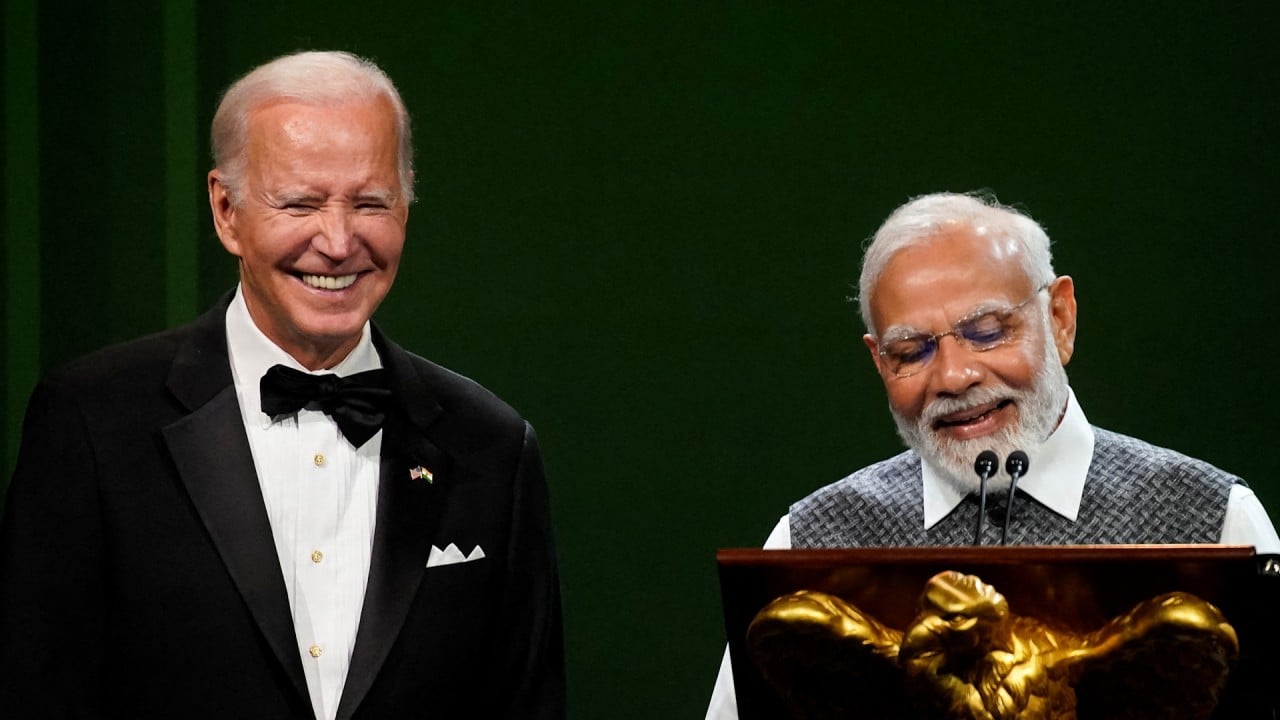
As West exploits India-China cracks, Asia must rise above the divisive ideology
- From G20 to Brics, the more the West seeks to weaken the India-China axis crucial to regional cooperation, the more Asia’s statesmen must stand together
Healthy though this changing balance of power will be in the long run, with its promise of greater North-South political and economic equilibrium, there will be turbulent times during the transition and Western powers are likely to try to exploit them in an attempt to restore the status quo ante.
India has so far managed to straddle a difficult Indo-Pacific and Asia-Pacific divide. But the India-China axis is the vulnerable link that holds together not only the emerging and advanced powers of the G20, but also serves as an anchor for the integrity of the Brics bloc.
It is no surprise that some of these powers – notably the US – wish to turn back the clock. How simple life appeared – at least to those who didn’t look too closely – 30 years ago when the Soviet Union had collapsed, China was re-emerging but not threatening, the European Union was newly born and Asia generally quiescent. Everyone knew who was “in charge” – the United States.
If the rest of the world needed to be consulted, it was done via the United Nations, G7, International Monetary Fund, World Bank, Organisation for Economic Cooperation and Development (OECD) and others, or in Asia via the Association of Southeast Asian Nations or the Asia-Pacific Economic Cooperation (Apec) forum. The G20 did not exist, nor did the plethora of organisations formed since in Asia.
It was a caricature of an international order, however, with a dozen or so nations, out of some 200 that make up the global total, purporting to represent the world while dominating those multilateral institutions that did exist. It was an order destined to be broken, then expanded and reformed.
Yet the West (a rather nebulous geopolitical entity even at the best of times) seems to be thrown into a state of near panic every time emerging nations in Asia, Latin America or elsewhere appear to be moving towards power-sharing arrangements.
Troubled China-India relationship means Asian century remains elusive
But emerging powers are destined to emerge, however many obstacles are placed in their path by those who feel threatened by the process of economic evolution.
A native of Eastern Europe heading a Washington-based institution, IMF managing director Kristalina Georgieva noted at the recent Asean summit in Jakarta that Asean economies have been scarred by external shocks. “Economic fragmentation makes it even harder,” she said. “If the world were to break into separate economic blocs, this would have profound implications for dynamic open economies such as Asean.”
It is imperative, she added, “that we work together to combat this threat”. Asia’s pragmatists will say hurrah to this sentiment, and let us hope they prevail over the defensive and aggressive forces threatening to push the world to the verge of conflict.
This calls for statesmanship and there seems to be more of that on display in Asia than in the West nowadays.
Anthony Rowley is a veteran journalist specialising in Asian economic and financial affairs


